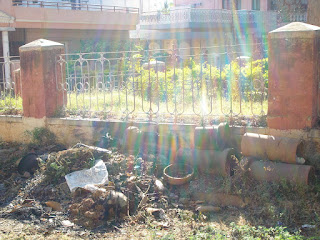P.M. Bhat, Member of Mysore Grahakara Parishat writes
The time has come to pay the property tax for the year 2008-2009. Many citizens are worried that the property tax has increased steeply with the rising value of property. But THIS PERCEPTION IS NOT CORRECT. Your tax has increased only marginally.
WHAT DOES THE LAW SAY?
Sec. 109A of the Karnataka Municipal Corporations Act, 1976 says:
109A. Enhancement of property tax.- Notwithstanding anything contained in section 108 and 109 the property tax assessed and levied under either provision shall not be assessed each year thereafter but shall stand enhanced by 15 percent once in every three years commencing from the financial year 2005-2006:
Provided that the Municipal Corporation may enhance such property tax upto 30 percent once in three years and different rates of enhancement may be made to different areas and different classes of buildings and lands:
Provided further that the non assessment of property tax under this section during the block period of three years shall not be applicable to a building in respect of which there is any addition, alteration or variation to it.
Provided also that nothing contained in this section shall be deemed to affect the power of State Government to direct an earlier revision of property tax.
When the draft of the amendment which changed the property tax basis from annual rateable value of the property to the capital value of the property, apprehensions were voiced that if property values increased sharply, the property tax burden would become unbearable to many citizens. To allay these fears, the government was forced to introduce Sec. 109A which fixes the average annual rate of increase in property tax at 5%, irrespective of how steeply property values are increasing.
So the property tax you paid in 2005-06 is the same amount you were required to pay in 2006-07 and 2007-08. It will increase by 15% for 2008-09 and will remain at the same level for 2009-10 and 2010-11. The first proviso of Sec. 109A empowers MCC to enhance the tax for the year 2008-09, but MCC has not exercised this power. The third proviso of Sec. 109A empowers the State to order an earlier revision of the tax, but it has not exercised that power either. So both these provisos are inoperative. Reassessment of the 2005-06 tax in the years 2006-07 and 2008-09 just because property values went up is not allowed by Sec. 109A.
Note that even if you buy a property (at the present astronomical prices), the tax on it will not increase. You continue to pay the amounts described above, unless you alter the building in any way (Proviso 2 of Sec. 109A).
So how much tax do you have to pay in 2008-09? All you have to pay is 1.15 times the property tax you paid for the year 2005-6. You have to add 24% of this amount as cesses (health, anti-beggary and library). You will also have to add Solid Waste Management cess (which varies from Rs. 10 per month to Rs. 50 per month depending on the size of your site).
You have probably paid more as property tax in 2006-07 and 2007-08 compared to 2005-06 and you are entitled to get the excess amounts back. MCC's door-to-door garbage collection did not begin on 1-1-2007 (In Yadavagiri, for instance, it began only in November), but you most probably paid SWM cess for the whole year 2007-08. You should also get back the excess amount paid as SWM cess. To pay what you are legally obligated to pay, and not what MCC wants you to pay, you have to use the printed property tax form. If you fill the form from the MCC website, the MCC software calculates your tax and you will be, in all probability, paying more than you should.
In the first page of the printed form, fill in only the year, and items 1-6 (your name and address, tenant's name, ward number, mohalla, road and site number). You do not have to fill in the other information. Go to page 2 and in the space at the top right hand portion of the page explain why you are paying what you are paying. If the space is not enough attach an extra page. A typical explanation will be as follows:
According to Sec. 109A of the Karnataka Municipal Corporations Act, property tax paid in 2005-06 will continue unchanged in 2006-07 and 2007-08. It will increase by 15% for 2008-09.
In my area, door-to-door garbage collection began in November, 2007.
Property tax paid in 2005-06 1000
Property tax paid in 2007-08 in ignorance of the law 1300
Property tax to be paid in 2008-09 = 1000x1.15= 1150
24% cess = 1150x0.24= 276
SWM cess for 12 months = 12x10= 120
Total = 1546
5% rebate for paying in April = -77
Excess property tax paid in 2007-08 = -300
Excess SWM cess paid in 2007-08 (for 10 months) =10x10 -100
Amount being remitted = 1069
MCC can not refuse to receive the form. If MCC objects to your form, tell them that the tax is "Self Assessed". If MCC does not agree with your assessment, ask it to send you a demand notice with details of its assessment.
So in paying your property tax for 2008-09, follow the law. You will also save money!
 B.Vaikunth Shenoy, Member, Mysore Grahakara Parishat writes
B.Vaikunth Shenoy, Member, Mysore Grahakara Parishat writes
























